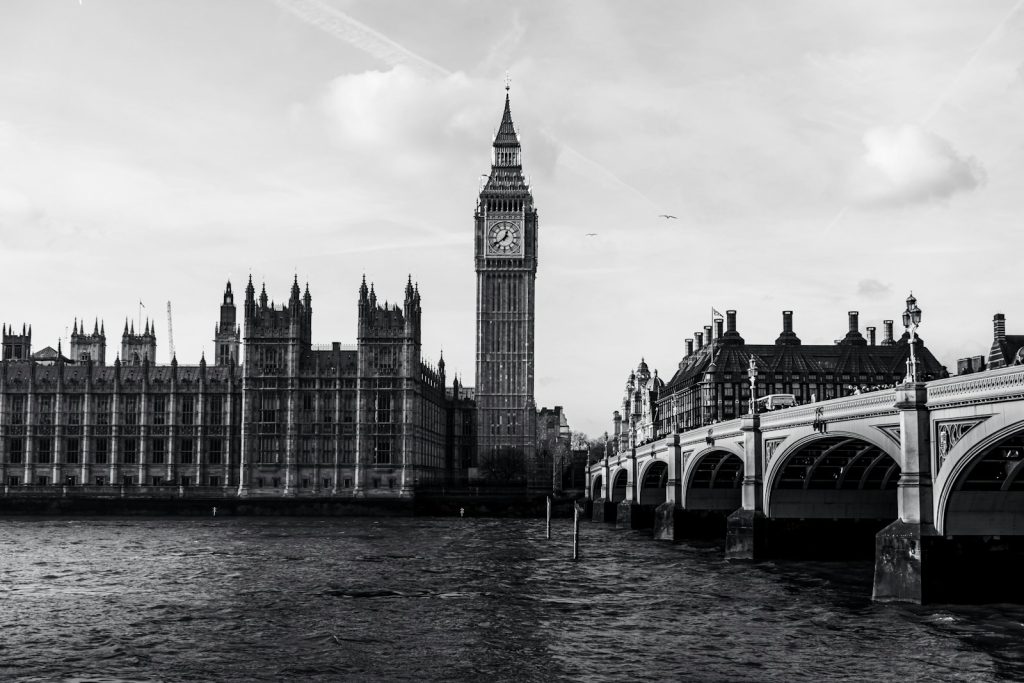Chancellor Rachel Reeves Unveils Tax and Spending Plans in her first Budget – to Mixed Reactions

Today, Chancellor Rachel Reeves presented her first budget, which is marked by a mix of tax hikes, public spending commitments, and targeted reforms.
Reeves described her 2024 budget as a “reset for our economy,” aiming to lay the foundations for future growth and stability. In her speech, she emphasized the importance of building a “rock of economic stability” to strengthen the UK’s position internationally. We explore the key measures and share initial reactions below:
Key Measures Announced:
Personal taxes
- Rates of income tax and National Insurance (NI) paid by employees, and of VAT, to remain unchanged
- Income tax band thresholds to rise in line with inflation after 2028, preventing more people being dragged into higher bands as wages rise
- Capital gains tax (CGT) rates will also see an uplift, with the lower rate increasing from 10% to 18% and the higher rate from 20% to 24%, targeting wealthier individuals and businesses. According to the Institute for Fiscal Studies, the CGT changes would mainly impact the wealthiest 1%, with two-thirds of the revenue coming from just 12,000 individuals.
- Rates on profits from selling additional property unchanged Inheritance tax threshold freeze extended by further two years to 2030, with unspent pension pots also subject to the tax from 2027
- Exemptions when inheriting farmland to be made less generous from 2026
- From April 2027, pension pots will come within the scope of inheritance tax (IHT). This move is part of an effort to close loopholes and is expected to raise substantial revenue for the government. It means that passing on pension wealth could now be subject to a 40% tax, similar to other inherited assets.
Business taxes
- Companies to pay NI at 15% on salaries above £5,000 from April, up from 13.8% on salaries above £9,100, raising an additional £25bn a year
- Employment allowance – which allows smaller companies to reduce their NI liability – to increase from £5,000 to £10,500
- Tax paid by private equity managers on share of profits from successful deals to rise from up to 28% to up to 32% from April
- Main rate of corporation tax, paid by businesses on taxable profits over £250,000, to stay at 25% until next election
Wages, benefits and pensions
- Legal minimum wage for over-21s to rise from £11.44 to £12.21 per hour from April
- Rate for 18 to 20-year-olds to go up from £8.60 to £10, as part of a long-term plan to move towards a “single adult rate”
- Basic and new state pension payments to go up by 4.1% next year due to the “triple lock”, more than working age benefits
- Eligibility widened for the allowance paid to full-time carers, by increasing the maximum earnings threshold from £151 to £195 a week
Transport
- 5p cut in fuel duty on petrol and diesel brought in by the Conservatives, due to end in April 2025, kept for another year
- £2 cap on single bus fares in England to rise to £3 from January,
- Outside London and Greater Manchester Commitment to fund tunnelling work to take HS2 high-speed rail line to Euston station in central London
- Government says it will “secure the delivery” of Transpennine rail upgrade between York and Manchester, after reports ministers were looking to cut costs
- Air Passenger Duty to go up in 2026, by £2 for short-haul economy flights and £12 for long-haul ones, with rates for private jets to go up by 50%
- Extra £500m next year to repair potholes in England
- Vehicle Excise Duty paid by owners of all but the most efficient new petrol cars to double in their first year, to encourage shift to electric vehicles
Drinking and smoking
- New flat-rate tax of £2.20 per 10ml of vaping liquid introduced from October 2026, as ministers shelve Tory plans to link the levy to nicotine content Tax on tobacco to increase by 2% above inflation, and 10% above inflation for hand-rolling tobacco
- Tax on non-draught alcoholic drinks to increase by the higher RPI measure of inflation, but tax on draught drinks cut by 1.7%
- Government to review thresholds for sugar tax on soft drinks, and consider extending it to “milk-based” beverages
Government spending and public services
- Reeves announced substantial increases in public funding, with the NHS budget receiving an additional £22.6 billion in day-to-day spending. Education is set to benefit from a 19% real-terms increase in its capital budget, including £1.4 billion dedicated to rebuilding over 500 schools – there will also be smaller rises next year
- Defence spending to rise by £2.9bn next year
- Home Office budget to shrink by 3.1% this year and 3.3% next year in real terms, due to assumed savings from asylum system
- £1.3bn extra funding next year for local councils, which will also keep all cash from Right to Buy sales from next month
Housing
- Social housing providers to be allowed to increase rents above inflation under multi-year settlement
- Discounts for social housing tenants buying their property under the Right to Buy scheme to be reduced
- Stamp duty surcharge, paid on second home purchases in England and Northern Ireland, to go up from 3% to 5%
- Point at which house buyers start paying stamp duty on a main home to drop from £250,000 to £125,000 in April, reversing a previous tax cut
- Threshold at which first-time buyers pay the tax will also drop back, from £425,000 to £300,000 Current affordable homes budget, which runs until 2026, boosted by £500m
UK growth, inflation and debt
- Office for Budget Responsibility (OBR) predicts the UK economy will grow by 1.1% this year, 2% next year, and 1.8% in 2026
- Inflation predicted to average 2.5% this year, 2.6% next year, before falling to 2.3% in 2026
- Official definition of UK government debt loosened by including a wider range of financial assets, such as future student loan repayments
- Budget policies will increase UK borrowing by £19.6bn this year and by an average of £32.3bn over the next five years, according to the OBR
- Budget boost to UK economy forecast to fade after two years
Other Measures
- Other measures include £11.8bn allocated to compensate victims of the infected blood scandal, with £1.8bn set aside for wrongly prosecuted Post Office sub-postmasters
- Government to stop receiving surplus cash from pension scheme for mineworkers
- Extra spending in England will lead to £3.4bn more for Scotland, £1.7bn more for Wales, and £1.5bn more for Northern Ireland in devolution payments
- One of the more controversial measures involves imposing VAT on private school fees, expected to raise £1.6 billion by 2029. This move has drawn criticism from some quarters, with opponents arguing it will disproportionately impact regions like London, where private schooling is more prevalent.
These changes are part of broader efforts to increase tax revenues and manage the fiscal deficit, but they have raised concerns about their impact on savers, particularly those nearing retirement.
Opposition Response:
Former Prime Minister and current Conservative Party leader Rishi Sunak delivered a sharp critique in the Commons. He labelled the budget as a series of “broken promises” that he claims will disproportionately impact working people. Sunak focused on what he sees as damaging increases in taxes and cuts to various projects that he initiated during his tenure.
One of the key points of contention was the cancellation of his proposed Advanced British Standard qualification, which Reeves announced would not go ahead due to a lack of allocated funding.
Sunak also expressed concerns about the impact of the budget on the business sector and pensioners, arguing that new tax measures on employer pension contributions would discourage companies from investing adequately in their employees’ future. He described these moves as economically short-sighted and likely to create long-term problems for economic growth and workforce stability.
City Reactions:
Business leaders and experts have voiced mixed reactions to the budget. Many welcome the increased spending on health and education, but there are concerns about the impact of tax hikes on economic growth and investment. The changes to employer national insurance contributions and the capital gains tax, in particular, have prompted warnings from the business community that these measures could stifle job creation.
Reeves defended the tough measures, arguing that “any Chancellor standing here today would face this reality. And any responsible Chancellor would take action.” She underscored the need to restore financial stability and rebuild public services after inheriting what she called a “£22 billion black hole” left by her predecessors
Here’s what businesses have had to say:
Vishal Marria, CEO of Quantexa said:
“We understand that the government needs to raise revenue from somewhere to make the critical investments our country needs. However, the CGT increase may make investors question whether they can still get sufficient returns from investing in British businesses.
“This may have a big knock-on impact, which risks stifling innovation within the UK market.
“As a business we have never made impulsive decisions during the big and high-pressure moments like this and this budget is no exception.
“We’ll take our time to properly analyse the Chancellor’s statement and consider the right next steps for our business without making knee jerk reactions.”
Tom Whicher, CEO and Founder of DrDoctor welcomed the announcement of more investment in the NHS, but said other changes were needed too, saying:
“While a single Budget will not fix the NHS overnight, the strength of commitment shown by Rachel Reeves today is a refreshing example of promises being kept.
As pressure on our health service increases, finding the funds to keep up with demand is a complex and difficult task. But with tax rises making it possible for the government to earmark £3.1 billion for capital investment in the NHS and an increase of £22.6 billion for day-to-day spending on healthcare, a lot of good will be done.
Investing in the infrastructure to make two million extra appointments available is a great way to reduce the waitlist but, with stretched bank balances front of mind, there is a more efficient way. Our insights from patients who have missed hospital appointments shows that nearly a third would find it easier to attend their appointment if they could rearrange it online or move it to a more convenient time – that’s a really quick fix to shrinking the waitlist by reducing Did Not Attends (DNAs).
I welcome the approach to the NHS in this Budget – it’s bold but realistic. But I’d also like to see more evidence of us working smarter, not just harder, to deliver a modern NHS that does justice to patients and the dedicated professionals working within it.”
Melanie Pizzey, CEO and Founder of the Global Payroll Association, says:
“This budget is going to be, as Labour themselves have confessed, painful for many to hear. It seems that big changes are on the horizon, and we’re not just talking about the big life moment taxes that have hit the headlines, such as Capital Gains and Inheritance Tax.
“The country faces a radical overhaul of tax contributions across the board and even if the proposed tax changes don’t directly affect you, you’re likely to feel the impact somewhere along the way.
“The prime example of this is, of course, an increase in National Insurance obligations for employers. As their outgoings increase, businesses are going to look for savings elsewhere and the unfortunate reality is that employees are ones who are likely to feel the pinch.
“Whilst pay cuts aren’t out of the question, a freeze on pay increases is the least they can expect in the short to medium term and, with inflation continuing to rise, this will inevitably result in a real term pay cut down the line.”
Gareth Burrows, Founder of Breathe HR, comments:
“Unlike big businesses, SMEs don’t have a deep well of resources. The tax increase for employers will therefore hit smaller businesses hardest.
“At the same time, 63% of SME bosses say they will be disproportionately impacted by the costs of implementing changes outlined in the new Employment Rights Bill. The significant impact of these combined, upcoming costs could therefore put some SMEs in precarious financial positions. This puts workers at risk too, if employers are forced to downsize as a result.
“SMEs are the beating heart of the British business ecosystem. But many will struggle to survive without guidance to navigate the raft of changes outlined by the budget and Employment Rights Bill, as well as funding and grants that recognise the disproportionate impact these changes will have on SMEs. Proper support for SMEs will make the difference which they and our economy need to thrive.”
Asad Dhunna, Muslim founder & CEO of The Unmistakables, an award-winning diversity consultancy firm, said:
“The increases in national insurance is putting UK businesses off hiring and may trigger more international hiring.”
“Much of Labour’s agenda goes towards big business, but UK is made up of a lot of small businesses.”
“The growth agenda needs to be balanced with inclusion – Labour are giving out mixed messages about productivity and hybrid working.”
Yalin Solmaz, ex Youtube, GenAI expert, said:
“From a purely financial standpoint, the expected increase in tax on dividends will be a blow to the creative industry where ~32% are freelancers (compared to 16% of the overall UK workforce), who tend to pay themselves via dividends.”
“Higher employer national insurance might also result in faster GenAI adoption by business (instead of hiring people) but I worry about this because most businesses are nowhere near ready to make the most of AI or know where to get proper AI training.”
Barry Whyte, UK’s leading AI training company, said:
“Heaping more and more cost on to employers disproportionally impacts mid to high-salary jobs. It will drive the growth industries that the UK needs – such as AI – to other countries which are scrambling over each other to offer incentives for relocation.”
“Waging war with well-intentioned initiatives such as research and development credits for tech companies will add fuel to the fire that is already raging, sending more and more tech scale-ups overseas.”
Simone Carasco – Founder and CEO of EvolvedMe Training & Consulting said:
“Today’s Pension Taxation Changes will not ensure equitable financial futures for all employees and these pension tax reforms may affect retirement planning, particularly for diverse employee groups.”
Nic Stratford, Partner and Senior Executive Reward Consultant at Mercer, said:
“While the increases in Capital Gains Tax rates were more moderate than expected, there is the risk that the higher rates make it less attractive for employees and CEOs alike to receive and hold shares in their employer.
“In nearly every FTSE company, CEOs are required to hold a multiple of their annual salary in company shares – including in most cases for some time after their employment has ended. Now, any gains on these shares held by top executives will be taxed more highly and there is no way of offsetting this loss of attractiveness. This is a highly mobile, global, talent pool some of whom can choose top roles in any location. Making UK companies less attractive makes it harder for UK companies to recruit and retain leadership talent. Current UK executives may also be more resistant to future investor driven requests for them to hold yet higher amounts of company shares, due to the higher rate at which gains on these shares will be taxed.
“The change also risks undermining the attractiveness of share plans as a means of encouraging employees to hold shares in the companies they work for. Instead, many employees may choose to sell their shares from share awards sooner, rather than face roughly one-quarter of future gains on retained vested share awards now being taxed. Coupled with frozen income tax bands, employees are facing a further hit to their remuneration package.”
David Ovens, Joint Managing Director, Archangels said:
“Today’s Budget offered the Chancellor a chance to outline a tax approach that nurtures entrepreneurship, encourages investment and innovation, and fuels long-term economic growth. Instead, we have seen a raft of measures, from raising CGT and Business Assets Disposal Relief, to raising employer National Insurance and lowering the rate threshold, all of which will undermine the country’s attractiveness as a place to start and scale a business.
“While we all must face up to fiscal realities, these tax increases fly in the face of the Government’s pro-business commitments and will only serve to dampen the UK’s entrepreneurial spirit. Given the well-documented importance of SMEs to economic growth, these changes are a major cause for concern.
“Business Assets Disposal Relief (BADR), in particular, has been a crucial incentive for entrepreneurs and management teams, encouraging risk-taking and innovation. Nearly doubling the rate, from 10% to 18% in two years’ time, will disproportionately affect those who have invested their time, energy, and resources into building businesses from the ground up – not necessarily the wealthiest CGT payers.
“As for CGT, while the rise might not be as steep as some feared, even this marginal increase will contribute to the perception of the UK as an unfavourable place to invest.
“All in all, a very disappointing Budget for business owners and to the UK’s reputation as a place to start and scale a business.”
Andy Mitchell, managing director at the sustainable energy revolution pioneers, 21 Degrees. said the budget was a missed opportunity to address energy efficiency in homes:
“Today’s Autumn Budget delivered by the new Labour government missed a vital opportunity to address energy efficiency in homes – a gap that is becoming increasingly hard to justify in light of the current climate crisis, as well as the proven benefits of efficient homes for health, comfort, and reduced energy consumption.
“The chancellor announced investment into the building of over one million new homes, but research by Passivhaus Trust shows that almost all new builds fall short of even the basic energy standards by over 60%, with the minimum requirements already low. Now, more than ever, there is a need to champion high-performing homes
“Bringing every home in the UK up to an EPC standard C would save the estimated energy equivalent of the output of up to four nuclear power stations. That’s why it’s time to approach retrofit projects as critical infrastructure investments.”
Conclusion:
Overall, Chancellor Rachel Reeves’ first budget has laid out a roadmap that she believes will balance tax increases with strategic investments in public services and infrastructure.
While some have praised the measures as necessary to restore economic stability, others remain cautious about the potential impact on businesses and households.
—
Photo by Jake Willett, Unsplash
Source: BBC


